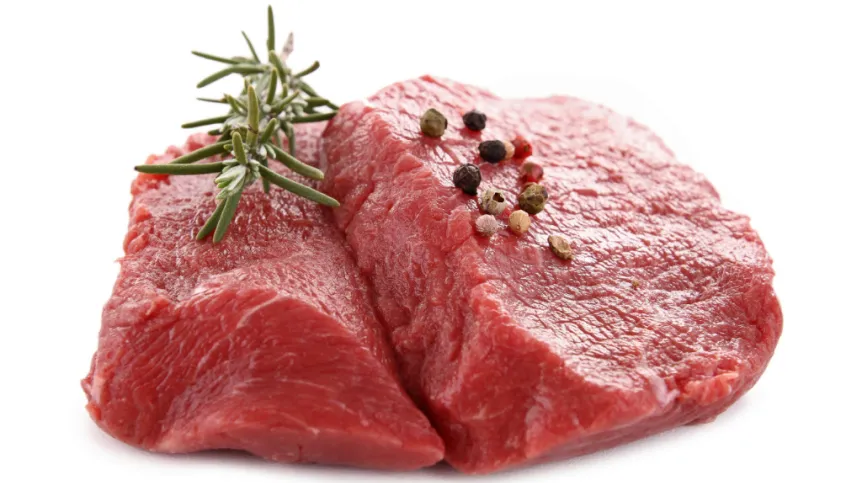
Fear of hunger, inherited after the war, meant that in the communist Poland meat was a symbol of security and the foundation of good food. In the 1980s, when the Poles faced meat shortages, poultry was included in the diet. Lamb gained popularity, and even nutria meat.
During the Second World War, a person living in occupied France had coupons for about 1.2 thousand kcal per day, a resident of the General Government about 600 kcal, while a Jewish person was basically condemned to starve to death - said Dr. Błażej Brzostek of the Institute of History of the University of Warsaw during the conference "Eating styles in Poland", which was held in Warsaw.
"Malnutrition and fear of starvation inherited from the war experience was a very strong sentiment throughout the communist period. In the second half of the 1950s the people of the communist Poland ate as much meat per year as the society of the Second Republic in the late 1930s. In the years 1945 to 1950, the share of expenditure on food in the household budget reached 70 percent" - said Brzostek. "In the 1960s, average communist Poland citizen ate 200 kg of potatoes a year, about 50 kg of meat and 5 kg of fish, to which there still is a distance" - he added.
The growing meat panic was first observed by sociologists in 1950-55, along with stagnation and even decline in wages. In subsequent years, the Poles faced the next meat crises, and one of the most important of them came in the 1980s. In 1980, meat consumption in Poland was 74 kg per person, with the dominance of pork; in 1982 it dropped to 65.7 kg; and in the following year it was only 58.2 kg.
"Shortages of meat and fat is what people feared most. Cooking and kitchen in the 1980s became a lens through which you could see the behaviour and activity of ordinary people in crisis conditions" - explained Katarzyna Stańczak-Wiślicz from the Institute of Literary Research PAS.
"The communist Poland created the image of meat as a symbol of security, the basis for a good, full cuisine. Over many years a pattern formed, according to which meat had to be part of the daily diet as a high-protein product. In the early 1980s the average consumption in Poland amounted to about 3.5 thousand kcal per person, which put us at the level of overconsumption. Poles ate so too much, too greasy. The problem in the early 1980s was not a lack of food, but the shaped patterns of eating. With such habits the 1980s really were a shock, because a lot of people could not imagine cooking without meat. Shortages of dairy products and cheese were not perceived so badly" - described Dr. Stańczak-Wiślicz.
In the face of the meat crisis in the early 1980s, Poles creatively adapted to the situation in which their eating habits were ruined. "The primary focus was on saving: using nutritious leftovers, like meat, potatoes, pasta from the previous dinner. Hence the avalanche of recipes for all types of casseroles. They could be made with almost everything: bouillon vegetables, meat leftovers, fibrous and membranous meats, that after a long boiling and mincing could be used in a casserole" - explained the researcher.
Another effect of the crisis was the "ennoblement" of poultry, which until the 1980s had been considered too delicate. "It was food for the sick and children, but when it become more available than other types of meat, it was recommend to use it as a substitute for red meat. Lesser quality meat were also used: offal, meat that was not very fresh, and products rarely used in the Polish cuisine: lamb, rabbit, and the meat that had not been eaten before, for example nutria" - explained Dr. Stańczak-Wiślicz.
To remedy bad taste and smell, women\'s magazines recommended adding large amounts of spices, herbs, to make unpalatable or not too fresh products edible. Another strategy was to return to the simplicity of peasant cuisine: noodles, dumplings. As since it was a laborious cuisine, to facilitate magazines proposed making large dumplings so that each person would get two big ones instead of eight small ones.
It was also recommended that a set of two to three plant proteins can be valuable when combined with even a small amount of animal fat. Conversion to vegetarianism in the 1980s was very unpopular, also for political reasons.
"Already in the early 1980s in women\'s magazines there were hints that because animal protein is best digestible, it should be conserved for special categories of the population: children, youth, men working physically and - to a lesser extent - pregnant women" - reminded Dr. Stańczak-Wiślicz.
Another way to deal with the crisis was doing spontaneous shopping. When products like butter, grits, flour or sugar became available in a store, people would buy them just in case, and later exchanged with other family members. There was also a return to backyard farm animals keeping and cultivation in cities, and informal exchanges of products between villages and cities.
Dr. Błażej Brzostek of the Institute of History of the University of Warsaw and Dr. Katarzyna Stańczak-Wiślicz from the Institute of Literary Research PAS spoke about culinary practices in the communist Poland at the conference "Eating styles in Poland", which was held at the Institute of Philosophy and Sociology PAS.
Dr hab. Błażej Brzostek z Instytutu Historycznego Uniwersytetu Warszawskiego oraz dr Katarzyna Stańczak-Wiślicz z Instytutu Badań Literackich PAN wystąpienia na temat praktyk kulinarnych w PRL wygłosili podczas konferencji "Style jedzenia w Polsce", która odbyła się w Instytucie Filozofii i Socjologii PAN.
PAP - Science and Scholarship in Poland, Ewelina Krajczyńska
ekr/ mrt/
tr. RL













